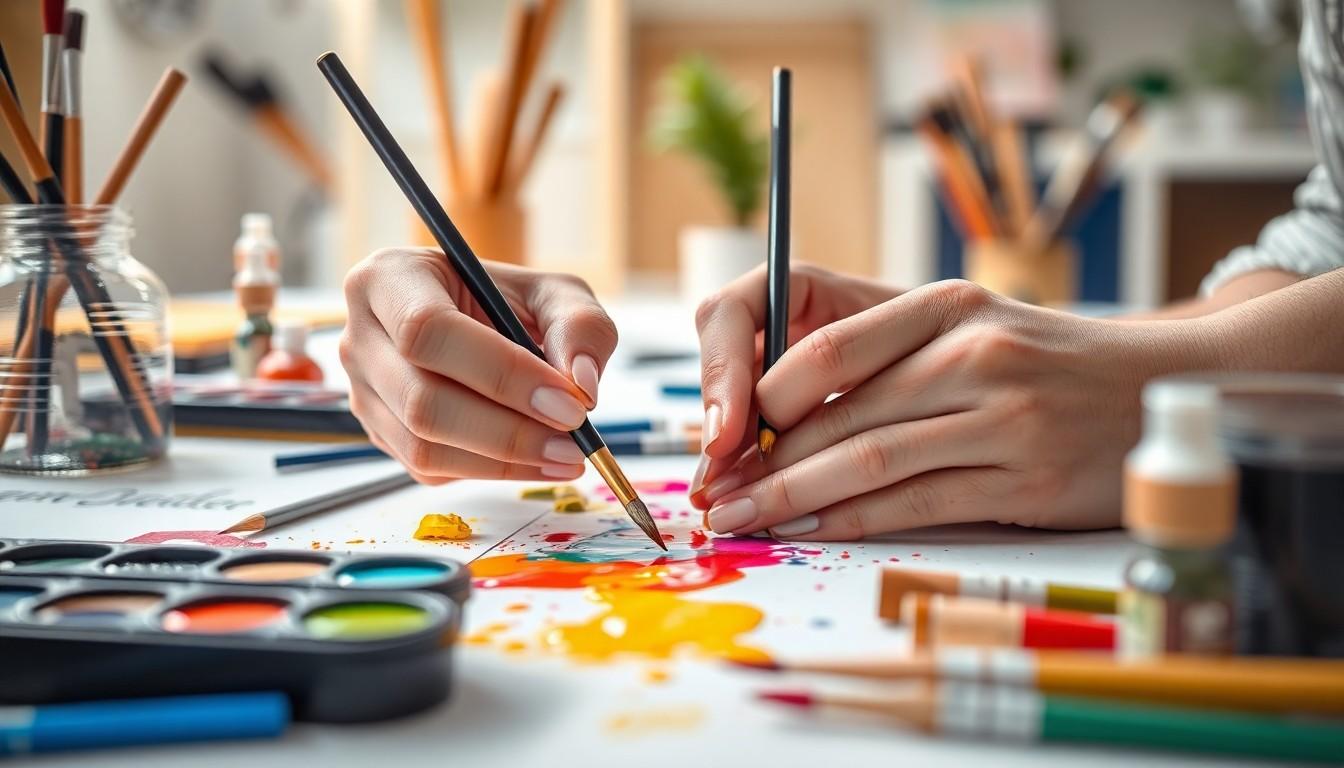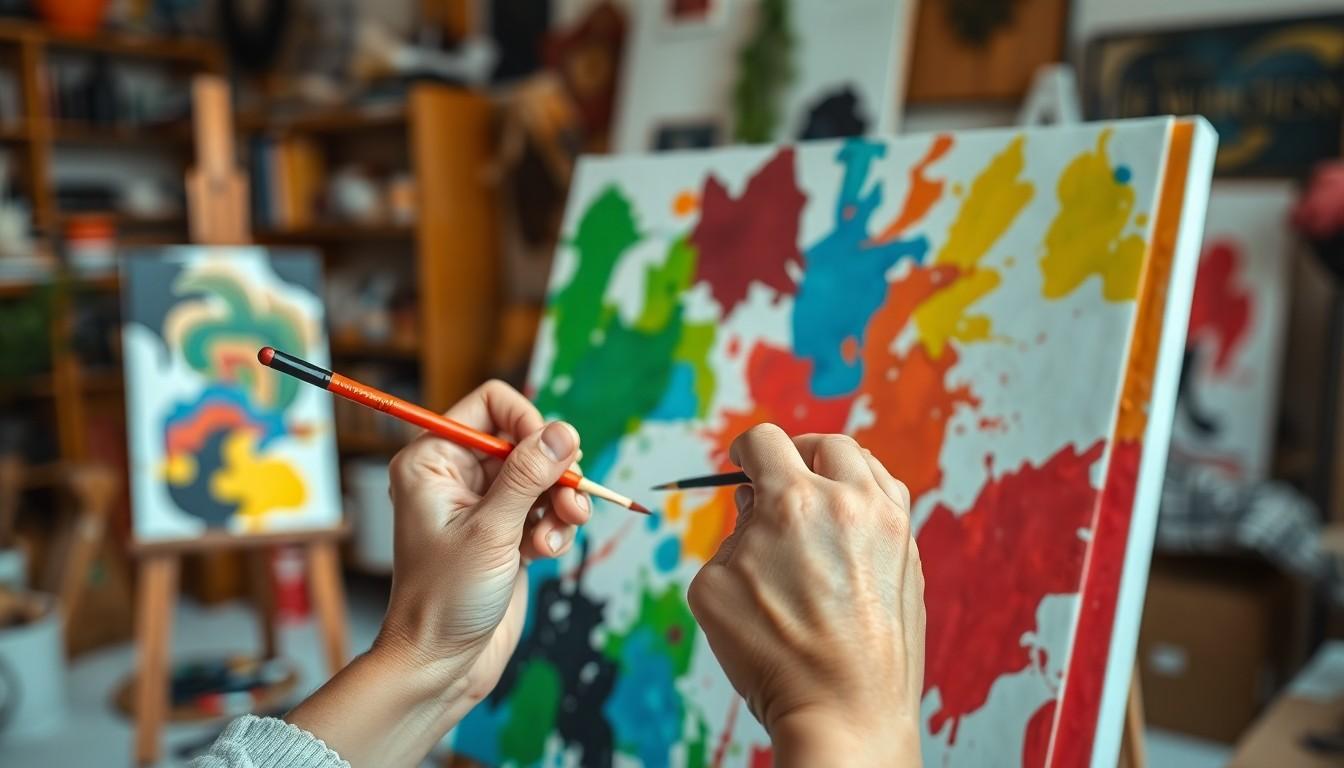In a world where hands are often taken for granted, “soinducorpsetdesmains” emerges as a delightful reminder of their power and potential. Imagine a realm where hands aren’t just tools but the unsung heroes of everyday life. From the simple act of waving hello to crafting masterpieces, hands do it all—and they deserve a spotlight!
Overview of Soinducorpsetdesmains
Soinducorpsetdesmains emphasizes the multifaceted roles of hands in human interactions. They serve as communication tools, conveying emotions and intentions through gestures. People use their hands to connect with others, showcasing warmth in simple actions such as waves and handshakes.
Hands also play a significant role in creativity and craftsmanship. Artists rely on their dexterity to shape, sculpt, and paint, transforming ideas into tangible works. Musicians depend on their hands to produce melodies, adding depth to performances that elicit emotional responses.
In practical settings, hands facilitate numerous daily tasks. Cooking, cleaning, and typing become second nature with proficient hand use. Individuals develop muscle memory over time, enabling efficiency in their activities. This muscle memory enhances productivity and supports a variety of skills.
Hands offer unique medical and therapeutic contributions. Healthcare professionals utilize them for examinations, diagnosis, and treatment. Therapists employ hand movements in rehabilitation, aiding recovery for injuries or conditions.
Culturally, hands carry symbolic meanings across different societies. They represent friendship, love, and harmony, often featured in rituals and ceremonies. The diversity of hand-related customs reflects the richness of human experience.
Understanding the significance of hands provides valuable insights into human behavior. Recognizing their impact can enhance interpersonal relationships, foster collaboration, and promote artistic expression. Soinducorpsetdesmains captures these elements, highlighting hands as indispensable tools in shaping personal and collective experiences.
Benefits of Soinducorpsetdesmains

Hands contribute significantly to overall well-being, impacting both physical health and emotional well-being.
Physical Well-Being
Hands engage in various activities that promote physical fitness. They support strength and dexterity through exercises like weightlifting and yoga. Daily tasks, such as cooking and cleaning, improve hand coordination and flexibility. Additionally, regular use of hands enhances muscle memory. Strengthening grip and finesse boosts performance in sports and physical activities. Caring for hands through stretches and massages reduces tension and prevents injuries. Incorporating hand-oriented activities into routines fosters overall physical health.
Emotional Health
Hands serve a crucial role in emotional expression. Gestures like holding hands convey support and affection, fostering deep connections. Creative pursuits involving hands, such as painting or crafting, promote relaxation and reduce stress. Engaging in these activities triggers the release of endorphins, enhancing mood. Moreover, engaging in therapeutic practices involving hands, such as massage or reflexology, encourages a sense of calm. Interacting with others through hand-related activities strengthens bonds, ultimately improving emotional well-being.
How to Practice Soinducorpsetdesmains
Practicing soinducorpsetdesmains engages hands in meaningful activities. Incorporating specific techniques enhances their effectiveness.
Techniques and Methods
Explore various methods to maximize hand use. Initiating daily hand exercises strengthens fingers and improves dexterity. Incorporating mindfulness during activities like drawing or writing fosters enhanced awareness of hand movements. Engaging in dynamic tasks like juggling or playing musical instruments challenges coordination and builds muscle memory. Utilizing gestures while communicating illustrates emotions and reinforces connections. Experimenting with different crafts, such as pottery or knitting, engages creativity and hones fine motor skills.
Recommended Frequency
Regular practice contributes to lasting benefits. Aim for at least 15-30 minutes of dedicated hand activities daily. Setting aside time several times a week for focused exercises promotes flexibility and strength. Consistency enhances muscle memory and overall proficiency. Including hands in social interactions and creative pursuits helps solidify these skills further. Prioritize engaging in hand-related activities to reap emotional and physical rewards.
Common Misconceptions
Many people mistakenly believe that hands are merely tools for physical tasks. This oversimplification ignores the emotional and symbolic roles hands play in human interactions. Commonly, individuals underestimate hands’ contributions to creativity and artistic expression, viewing them only as instruments for manual labor.
Some think hands are less important because they can be replaced by technology. In reality, technology often enhances the capabilities of hands rather than substituting them. The significant impact of hands as communication tools cannot be overlooked, particularly regarding their ability to convey emotions through gestures.
Another misconception involves the notion that only specific activities benefit from hand involvement. However, nearly all daily tasks, from cooking to expressing affection, require active engagement of the hands. Similarly, there is a false assumption that hand health is a minor concern. In fact, caring for hands through stretches and proper ergonomics maintains physical health and increases overall well-being.
Few recognize the cultural significance attached to hand gestures in rituals and ceremonies. Hands facilitate connections among people and often symbolize friendship or love. Engaging in hand-related activities promotes emotional well-being, yet some overlook this important benefit.
Many assume that hand exercises only improve physical skills. A more comprehensive understanding reveals that these practices also enhance emotional connections and mindfulness. Prioritizing hand engagement leads to greater personal satisfaction and fulfillment. Overall, dispelling these misconceptions fosters a deeper appreciation for hands and their vital role in human experiences.
Conclusion
Recognizing the significance of hands enriches one’s understanding of their impact on daily life. By engaging in purposeful activities and exercises, individuals can unlock the full potential of their hands while enhancing physical and emotional well-being.
Embracing the multifaceted roles of hands not only fosters creativity and connection but also nurtures personal growth. Prioritizing hand health and functionality cultivates a deeper appreciation for the often-overlooked capabilities they offer.
Ultimately, hands are more than just tools; they are essential instruments of expression and interaction that shape experiences and relationships.




